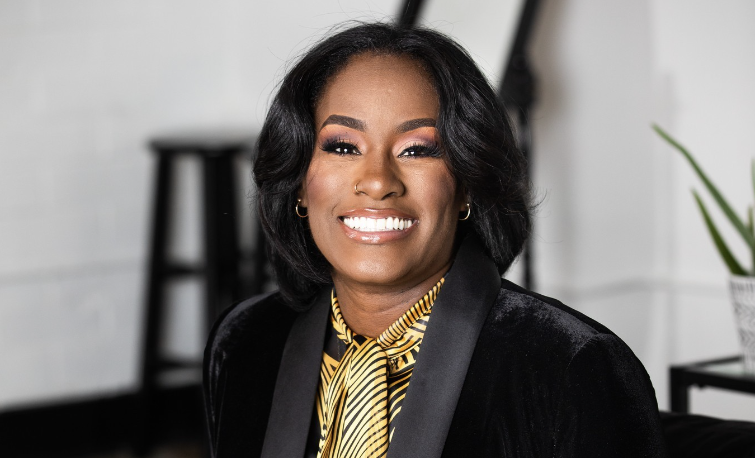Estate planning is a concept that many people, particularly in communities of color, tend to overlook. However, as Attorney Amber C. Saunders explains, the implications of not planning for the future can be devastating.
In an exclusive interview with ADW, Saunders shared her personal story of how she transitioned into estate planning and the significant role it plays in preserving wealth for future generations.
“I thought I was going to do criminal law, but when my grandmother got diagnosed with dementia and she was the only person who did anything,” Saunders explained. “She had long-term care, all the appropriate insurance, she transferred the house, and had power of attorney. It was easy for my mom and uncle to take care of her.”
However, after witnessing her mother’s struggles managing her uncle’s estate without a plan in place, Saunders realized how crucial estate planning is, especially in the Black community, where it’s often neglected. “My uncle and my mother were in probate court for three years, flying back and forth to Massachusetts to manage the probate because he didn’t do any estate planning. It was really hard on my mom.” It inspired me to transition and add estate planning to my practice.”
Finurah reported that an estimated $68 trillion will be transferred from U.S. households to their heirs and charities over the next 25 years, and Black Americans could miss out on this wealth transfer.
Estate planning, Attorney Saunders clarified, isn’t just for the wealthy or those with sprawling assets. “People should not be misled by an estate sale or anything like that just because it sounds real fancy and real rich. Anything that’s in your name at the time that you passed away is a part of your estate. It could be your clothes, your earrings, or anything. All of those things are part of your estate,” Saunders said.
For many families, estate planning is delayed due to fear and discomfort surrounding such a grim topic.
“I don’t know a lot of Black people who say somebody died. They say they’re going up yonder, or transitioning. We don’t even use the word death because in our community and in our culture, words are so powerful,” Saunders said. “I think people feel like if I plan for death, then it’s like you’re going to make it hurry up, right? And it’s not the case. They avoid trying to communicate about it at all costs, because they feel like they’re going to bring their death about a little quicker.”
Most clients, Saunders observed, only seek estate planning after a crisis. “They see someone else go through probate or get sick themselves, and it freaks them out,” she said. “That’s when they realize they need to get their life in order.”
Estate planning isn’t just about preparing for death; it’s also about ensuring peace of mind for loved ones. Saunders emphasized how critical it is to start these conversations with parents and older relatives while they are still healthy.
She offered some practical advice: “Start with a healthcare directive and a power of attorney. It’s a gift to yourself to talk to your parents about it, so that you know what they want you to do.”
Attorney Saunders further detailed how heirs’ loss of property has contributed to the significant wealth disparity. “After emancipation, Black people owned 16 to 19 million acres of land. Today, we own around 3 million. That’s because we’re not properly transferring ownership, and these properties are getting lost.”
As the largest wealth transfer in history looms, with baby boomers passing down their businesses and other assets, Black families risk being left out due to the lack of estate planning.
“The stakes have never been higher,” Saunders said. “If we don’t get this right, we’re going to miss out on a historic opportunity to pass wealth down to the next generation.”
For more information or to contact Attorney Amber C. Saunders, visit her website here.


